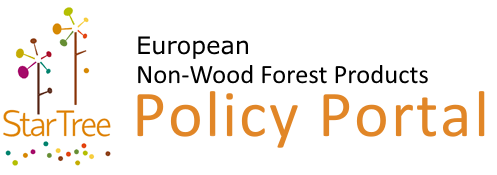Torggelen (chestnut-wine touristic package)
Description
Brief description of the instrument and its modus operandi
The mechanism is based on the direct collection of chestnuts in the forest by tourists that pay the forest owner; after the collection experience, the harvest might be sold to the forest onwer, directly consumed in the house of the forest owner or the tourist can take the harvest at home.
Which problem the instrument is supposed to solve?
Chestnut forest abadon and some small problems on the control against “chestnut thieves”
Purpose or main objective / overall goal of the instrument?
increase the forest owner revenue and create a new economic opportunity in the area, through the improvement of chestnut forest productivity
Side objectives/goals of the instrument?
Bridge the wine production system (very strong) with the chestnuts and in general with the forest sector (very weak) in order to create a new cash flow toward chestnut forest
Innovation content or potential of the instrument?
the instrument was considered among the most successful marketing strategy, the forest owners and the provincial authority achieved to maintain a high flux of tourist in a almost dead tourist season
Which laws and regulations support the implement of this instrument?
no specific regulations have been implemented
The initiator/promoter of the instrument?
private forest owners
Which organizations are involved in the operationalization of the instrument?
the provincial authority, the provincial touristic agency, group of forest owners
How the monitoring is ensured?
the forest owner is the one that control
How the compliance is ensured?
there is a self compliance; all depend on the marketing strategy of the chestnut forest owner: the more he/she invest, (generally) the more tourists he/she is able to attract
How is the overall performance of the instrument?
it increased the revenue of forest owners and it recovered several small chestnuts forest (the forest angency did not comunicated the quantity of hectares yet)
Brief description of the context for the emergence of the instrument
A group of forest owners start to sell touristic packages based on wine and chestnut tasting. The experience become a touristic phenomena and the forest onwers started to be copy one each other; they decided later on to form two local chestnut assocaitions.
Have any of the items mentioned above changed since the instrument entered into force?
No
Is there any qualitative or quantitative study of the impacts of the instrument?
Yes, please specify
Details
The chamber of commerce and the provincial authority make some internal reporting annually.
| Instrument | |
| Year | early 1970s |
|---|---|
| Policy area | Forestry |
| Affected activity | Harvesting/Production |
| Affected actors | Landowner/land manager, Picker/harvester/hunter, Retailer |
| Products | Fruits, Nuts |
| Subject | NWFP |
| Promoter/initiator | Public/private |
| Zone | South West Europe |
| Countries | Italy |
| Regions (NUTS 2) | Trentino-South Tyrol |
| Instrument type | Economic |
| Legal status | Non-binding |
| Geographical scope | Regional |
| Affected activity | Harvesting/Production + |
| Affected actors | Landowner/land manager +, Picker/harvester/hunter + and Retailer + |
| Class | Instrument + |
| Countries | Italy + |
| Document category | Instrument + |
| Encodedname | Torggelen_.28chestnut-wine_touristic_package.29 + |
| Geographical scope | Regional + |
| Initiator | Public/private + |
| Instrument type | Economic + |
| Lcname | torggelen (chestnut-wine touristic package) + |
| Legal status | Non-binding + |
| Name | Torggelen (chestnut-wine touristic package) + |
| Policy area | Forestry + |
| Products | Fruits + and Nuts + |
| Regions | Trentino-South Tyrol + |
| Response set | Italy Instrument A3 - Agent 1 Land + |
| Subject | NWFP + |
| Year | 1970 + |
| Zone | South West Europe + |
